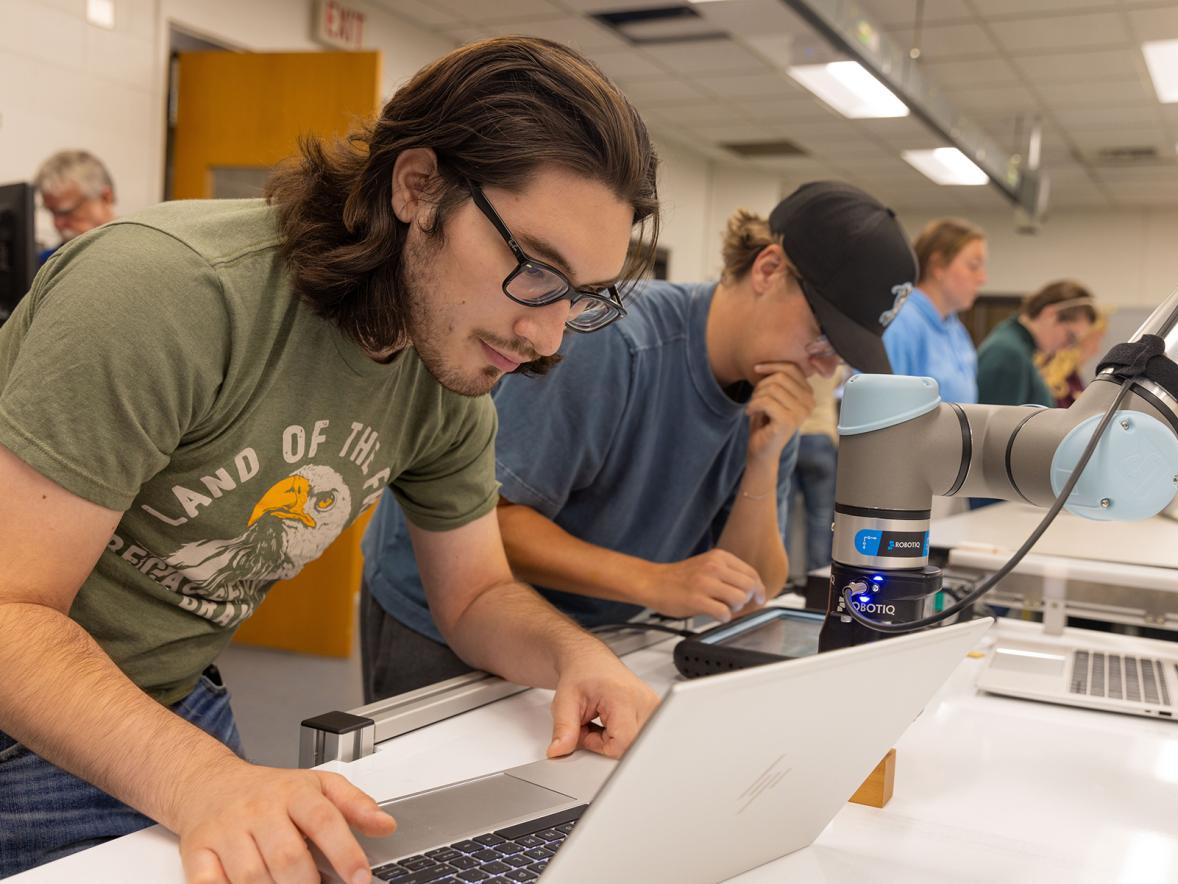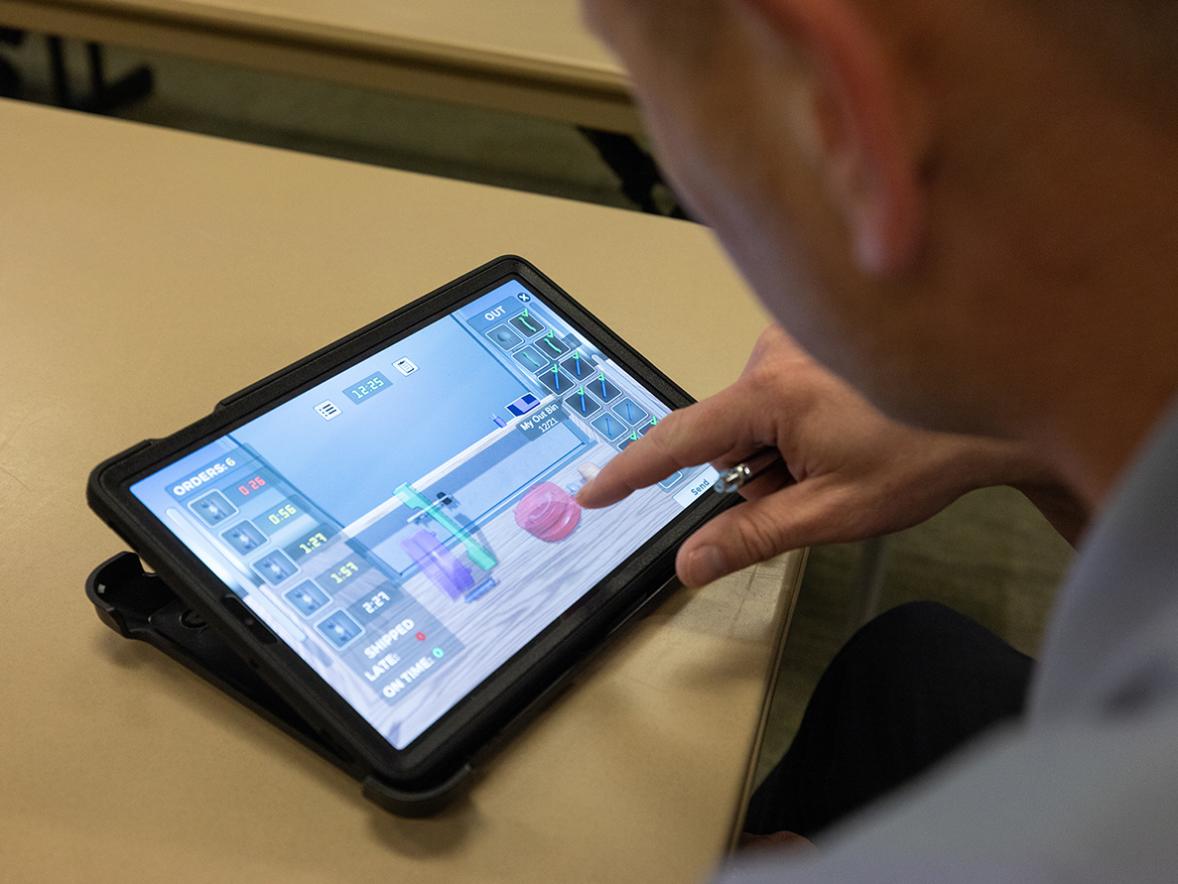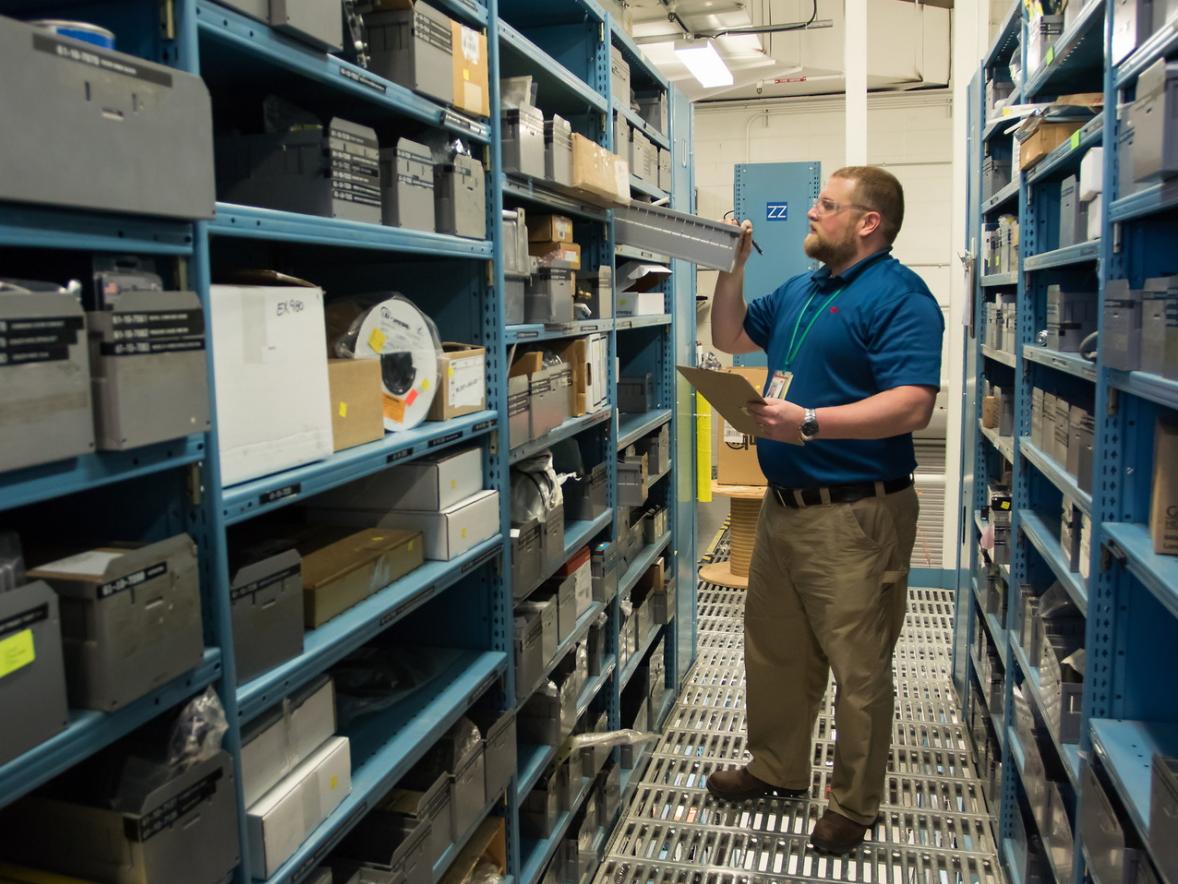Classroom Projects sponsored by external partners are a cornerstone of UW-Stout's polytechnic identity, and UW-Stout is dedicated to collaborating with business, industry, community partners, and other organizations to enhance innovation through career-focused applied learning and research.
UW-Stout continues to seek projects that we can bring into any of our degree programs that allow our students to solve real problems or create new designs and products.
Each discipline provides its students with a capstone or senior design course in which students can bring together the skills and knowledge they have developed in an applied manner to solve an external partner problem.
The Office of Corporate Relations and Economic Engagement (OCREE) provides support for external partner projects with mutually beneficial outcomes, ensuring that robust student learning experiences align with external partner needs in a high value exchange. If needed, we can enter into Non-Disclosure Agreements and when relevant Intellectual Property Agreements.
• Access to Solutions and Expertise: Gain fresh perspectives and high impact results from emerging professionals with access to campus resources, labs, technology, and faculty expertise. Have direct access to a dedicated team of students and faculty advisor to work on your project.
• Recruitment & Talent Pipeline: Increase recruitment exposure, assess student talent, and provide meaningful professional development student experiences.
• Brand Awareness on Campus: Share your company culture and build brand awareness while benefitting from hundreds of hours of work from student teams.
• Development of a Skilled Workforce: Develop a skilled workforce by providing the next generation with real-world experiences to reduce skill gaps and enhance career readiness.
• Applied Experiences: Students work collaboratively on projects in their field of study, applying newly emerging knowledge and skills to real-world problems and solutions.
• Enhanced Access to Regional & National Employers: Students increase knowledge of employers in their field and gain networking access with external partners.
• Mentorship: Students receive mentorship and feedback from professionals and alumni in the field.
• Career Readiness: Students gain practical experience directly related to their future careers, generate resume artifacts, and enhance career readiness skills through mentored collaboration, communication, project/time management, critical thinking, and problem solving.
A class project is undertaken by a student team or an entire class and facilitated by the instructor, with external partners serving as mentors and resources, meeting/communicating with students regularly.
Students are under the supervision of faculty and engage with an industry advisor through the life of the project
Projects are selected carefully to provide an aligned and engaging educational experience, to provide maximum benefit to the external partner, and to ensure the maximum chance of successful outcomes.
Proposed projects are refined and scoped in close consultation with the instructor to ensure expected outcomes and deliverables align with the education levels of experience and knowledge of the students. Small, unique projects are welcome, as are multi-year opportunities.
At the end of the semester, students present their results to their industry sponsor, many of whom have in the past adopted and implemented concepts from the project.
Students also showcase their projects through formal presentations and posters at the end of the semester, unless otherwise restricted due to executed NDA’s and/or IP agreements.
UW-Stout will consider working with all external partners regardless of timeline to ensure successful outcomes are met within the academic calendar. Projects can be single or multiple semesters with the ability to span over the summer or winter breaks depending on the type of project and needs.
We request that projects are agreed to at least two weeks before the start of the semester, but we will usually continue to accept project proposals until the first day of classes, when possible.
This suggested timeline provides an ideal map for external stakeholders to enable the creation of successful, robust, applied external partnered class and standalone projects.

- Lower priority projects reflecting a real-world opportunity or problem faced by your organization that your team does not have the time or bandwidth to pursue.
- The intent should be to bring student-generated solutions and innovations back to an experienced team to test, refine, and put into production.
- Project deliverables align with this intent.
- Ongoing projects which will benefit from a fresh perspective from emerging professionals with access to expertise and campus resources.
- Student teams can deliver early-stage concepts or designs, testing/research reports, and improvement or optimization of a current problem.
- Project types
- should be open-ended and amenable to multiple solutions.
- might be research-oriented, design focused, or centered on evaluation, testing, or analysis.
- range from one to two semesters in length and can involve an entire class or a student group within a class.
- smaller scope Standalone Projects are usually short term and entail working with one key instructor and potentially a student (or team).
- Appropriate for entry-level employees
- Expected outcomes and deliverables align with education levels of experience and knowledge of the aligned course/capstone.
- Projects have enough dimension to allow student teams to work independently and collectively in the given amount of time.
- Significant discipline content
- Provide a clear set of criteria including discovery phase, design/analysis phase, and results phase.
- Aligned Expectations
- All projects will result in deliverables which might include virtual or physical prototypes, full development/buildout, proposed solutions, research outcomes, or reports.
- External partner class projects align with course and program objectives, providing students with applied learning/research opportunities and experience communicating, planning, and executing a real-world, discipline-specific project.
- Communication plans between student teams and external partners are encouraged to establish frequency of feedback and progress reporting.







